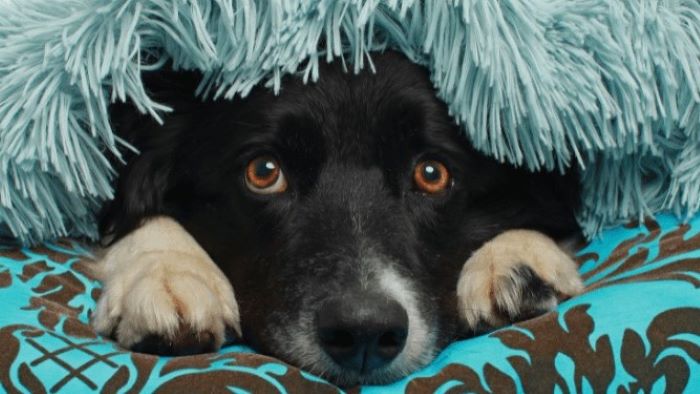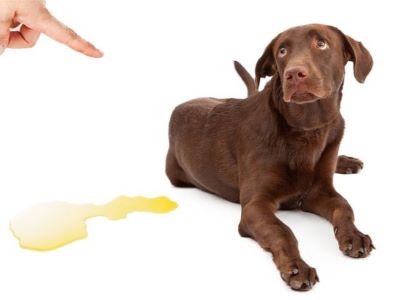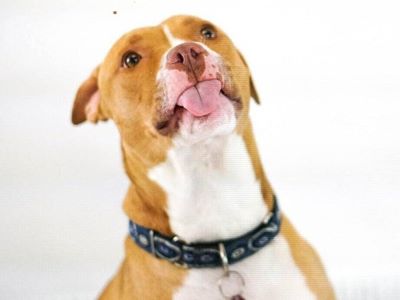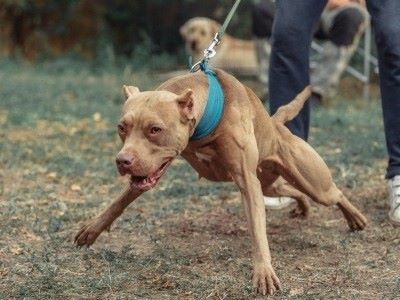Ever wonder why your furry friend starts acting weird and wacky? One minute your dog is their normal sweet self, and the next they’re barking up a storm or getting into all kinds of trouble. It’s enough to make any pet owner scratch their head and think, “Why is my dog acting weird?“
It’s very common for dog owners to notice occasional odd behaviours in their pets. While some strange dog behaviours may simply be an amusing new habit, other changes could signal underlying medical or psychological issues that require veterinary attention.
In this article, we’ll explore some of the most noticeable weird behaviours in dogs and what might cause your pets to act out of character. Discover what to watch out for in your dog’s habits and when their odd behaviours should prompt a call to the vet.

"There are many reasons your dog could be acting weird, including illness, injury, boredom, anxiety, problems with their diet, or changes to their environment. Allergies, changes in your dog’s routine, new people or pets in the household, stress, and fear are also among the many potential causes of your dog’s weird behavior", confirm the experts from NotABully
Understanding Strange Behaviors in Dogs

Moving to a new home can seriously stress out your dog. While you’re busy painting walls, unpacking boxes and decorating, your pet’s whole world has been turned upside down. All of a sudden, everything looks and smells unfamiliar. Your dog may pace around anxiously, act timid, or have accidents inside as they try to adjust.
Barking or howling for attention is another common reaction. Some pups even become destructive and chew items or furniture in the new space. It’s their way of coping with a dramatically different environment.
If your dog is exhibiting weird behaviours, closely examine if anything in their environment has changed recently. Their odd actions are a cry for adjustments to their routine and space and they can feel secure again. Show them extra love as you help them adjust to the unfamiliar. With time, your dog will learn to accept the change and go back to being their happy self in their newly arranged home.[1]
Dog Behaviours Explained

Humans may sometimes find the unique communication and behavioural patterns of dogs strange. A basic understanding of typical dog behaviour can help you better understand why your dog might be acting strangely. Knowing what’s normal behaviour in dogs will help you differentiate between possible warning signs of a problem and normal behaviour.
Dog Eating Grass
In reality, our pets are omnivores by nature, supplementing their diets with vegetation. Grains are sometimes added to dog kibble in addition to meats. Eating grass is a fairly normal canine behaviour that is occasionally thought to be harmless. If you believe your dog may have an underlying medical condition, such as gastrointestinal disease, you should consult your veterinarian as a responsible dog parent.
If not, your dog may be chewing grass because he is bored.
Dog Eating Poop
The terrible “poop eating” habit is possibly one of the least desirable behaviours canines can do. Perhaps, they can’t even tell the difference between the excrement of a dog and that of another animal. Your dog might be suffering from insufficient nutrient intake. This could mean they’re experiencing the following:
- Parasites
- Diets deficient in nutrients and calories
- Malabsorption syndrome
- Diabetes, thyroid disease, and other conditions that might cause an increase in appetite.
- Drugs, such as steroids
Dog Peeing Inside The House

Urinary tract infections (UTI) and bladder stones are common health problems that could be the cause of the issue. If your dog continues to have accidents indoors, you should take him to your prescribed vet. They’ll probably ask for a urine sample at the clinic to look for germs or unusual infections.
Your pet may have something of a behavioural issue if your veterinarian has ruled out all other medical concerns. Your male dog can be marking its territory, even after being neutered. If there has been a shift in your home setting, your dog may also be anxious. It can be that someone moved in or out, or that they might a brought a new pet or had a baby.
Whatever the situation, there are a few actions you may take to support your dog in making a positive shift:
- Potty training them again
- More frequent trips outside to the washroom
- Don’t yell or punish your pet
- Identify the trigger to help your pup cope
- Get your vet’s help
Dog Licking Others
This experience has taught us that dogs can detect their human parents’ emotions in a sixth sense. Our animal companions are extremely perceptive and emotionally reflect us. Your dog will kiss you to convey their happiness, especially after a long day at work, or lick you to console you if they think you’re upset. Dogs also use licking to communicate their feeling.
Dog Whining
Dogs that love whining are attempting to communicate with us usually, They use body language, barking, and whining to communicate their needs and wants. if your dog’s constant whining has you wondering, “Where is my dog acting weird?”, try and listen to them.
We may learn to differentiate between the various whines of our pets. Your pet may attempt to communicate that it needs to go potty; it could be expressing fear, anxiety, frustration, boredom, great excitement, or discomfort.
So your pet’s emotional state of mind is represented by their complaining. As long as we are careful to meet our dog’s needs without encouraging their behaviour that may turn into something undesirable, it’s perfectly natural. Look for signals in your pet’s body language along with the whining to determine what your dog is trying to tell you.
Dog Staring

Your dog might tilt his head and stare at you if you are attempting to teach him a new trick or are having a lengthy chat with him. Our pets learn words that result in immediate action and reinforcement.
Dogs mostly communicate with their bodies, and looking at you is one way they accomplish this. You are your dog’s true love, after all. He or she can be attempting to measure your emotional condition, grab your focus, or steal some tender kisses from you.
Dog Suddenly Getting Excited

Dogs have various ways of showing affection. Suddenly, they might run a fun little lap around the yard or home. This behaviour is sometimes referred to as “zoomies” or an energy burst, even though it may appear abrupt and strange. Dogs can naturally release pent-up energy or express excitement and happiness through these harmless zoomies. During these episodes, they might jump, run in circles, playfully nibble their toys, or do other playful actions.
FAQs
Why is my dog acting weird?
Chewing and destruction often happen when dogs are bored, anxious or teething. Provide plenty of exercises, stimulating toys for chewing, and crate train to confine during alone time. Managing the behaviour and providing appropriate outlets can curb destructing chewing.
Why does my dog bark/whine/pace at night?
Nighttime barking or restlessness usually indicates something like anxiety when alone, needing a potty break, or even cognitive issues in senior dogs. Maintain a comfortable sleeping area, take them out before bed, provide calming aids as needed, and consult your vet if it persists.
Why is my dog suddenly clingy and following me everywhere?
Needy behaviour can signal separation anxiety or stress. Try not to reinforce it with too much extra attention. Provide plenty of exercise and mental stimulation. Ease anxiety with calming techniques. Check for potential health issues that cause the clinginess too.
Why did my potty-trained dog pee in the house?
Accidents can happen when a dog is stressed, as a health issue like UTI, or just from changes in access to the yard. Thoroughly clean the area to remove scent cues. Keep a consistent schedule and watch for signals they need to go out. See a vet if it continues.
Why is my dog suddenly afraid of going on walks?
Changes to your normal walking route, encountering a frightening stimulus like a loud noise or animal, or even just again can cause fearfulness during walks. Go slowly, provide positive reinforcement, and consider a calming aid to help them overcome the fear.
Conclusion
It can be very alarming when your dog starts acting in ways that you don’t understand and makes you question “Why is My Dog Acting Weird?“. Some are worse than others, such as when your dog suddenly becomes hostile toward you. On the other hand, even less terrifying behaviours could have serious underlying causes.
Whatever the reason behind your dog’s odd habits, you should take the time to find out. Everyone should do this. The first thing to do here is to address the problems causing those strange and weird behaviours.
Remember that your dog is reacting by acting strangely. Since they are mute, you must look for hints as to what is triggering their reactions.
References:
- Why Is My Dog Acting Weird | NotABully



